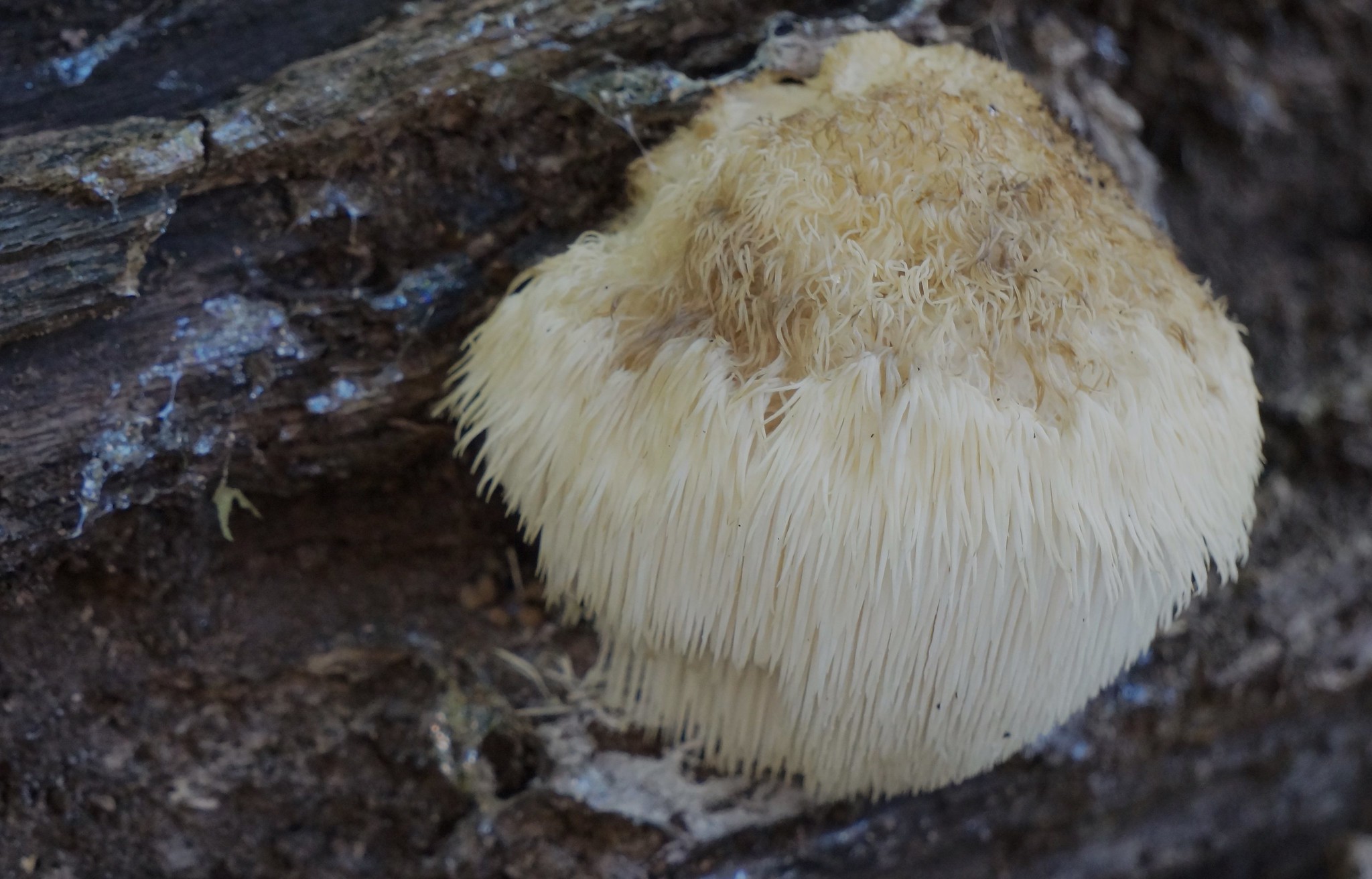It began, oddly, with vegetables. That shiny black plant I often grilled: what was its name? I could remember baby marrows but not the Italian name we always used. The yellow vegetable shaped like a pear? Nope, all had relocated to my forgettery.
Entering all I knew about something on Google would generally turn up the word I’d lost, but having to rely on AI for daily conversation was alarming. And there was ample evidence for alarm: my mother ended her final days with dementia. In her last days, I was the only person she recognised. Was I on the same road to mental hell? It was terrifying. The more I stressed, the more I forgot.
So I started digging (warning: don’t put dementia or Alzheimer’s in Google search). Partly by click luck and partly because I have friends into alternative medicine, I came across lion’s mane mushrooms. Odd name, but when you see a picture of them, it’s exactly right.
 Traditional Chinese medicine credits lion’s mane with combating the deficiency of Qi. Image: Rick Hanger / Flickr
Traditional Chinese medicine credits lion’s mane with combating the deficiency of Qi. Image: Rick Hanger / Flickr
 Lion's mane extracts might have a cholesterol-lowering effect. Image: Wikimedia Commons
Lion's mane extracts might have a cholesterol-lowering effect. Image: Wikimedia Commons
Mushrooms are the fruiting bodies of subterranean mycelium networks that are essential for keeping trees and other plants healthy by sharing nutrients. They pop up, spread their minute seeds then collapse in mucky heaps, seemingly exhausted from the effort.
Traditional cultures around the world have for centuries known about their mixed blessings as food medicine, poisoning or getting high. The Greek physician Hippocrates identified mushrooms as potent anti-inflammatory agents and useful for cauterising wounds.
In the East, reverence for fungi is evident in the Chinese description of the mushroom hou tou gu (lions mane) as the ‘spirit plant’ or monkey head, believed to provide long life and spiritual potency. In Japan, it was called Yamabushitake from a sect of Buddhist monks who use it to aid meditation.
Traditional Chinese medicine credited lion’s mane with combating the deficiency of Qi, life force, and promoting health in liver, spleen, lungs, heart, kidneys and gut.
Modern medicine, based on more cautious evidence-based research, has been slower to catch on to the healing potential of fungi. It’s only in the last few decades that Western science has looked beyond the antimicrobial and cholesterol-lowering properties of fungi for other potential applications.
As always, rats and mice had to bear the brunt. Research on obese rats showed that lion’s mane extracts might have a cholesterol-lowering effect. It lowered the blood sugar levels of rats with induced diabetes. Wounds also healed faster and nerve damage regenerated more rapidly. More interestingly, the mushrooms also improved their learning skills.
In mice, the mushrooms helped protect against stomach ulcers and stimulated the growth of neurons in the brain. In a behaviour test on wild mice with induced Alzheimer’s disease, lion’s mane produced statistically significant improvement in spatial short-term and visual recognition memory.
That was significant. Could it do the same in humans, we being upright hairless creatures with mammalian kinship to rodents?
In 2008, a group of 15 elderly Japanese men and women with mild cognitive impairment were given lion’s mane for 16 weeks while another 15 were given a placebo. At the end of the experiment, the mushroom eaters’ memory scores had significantly increased.
Then in February 2023, the Journal of Neurochemistry published the results of extensive research into the effects of active compounds in lion’s mane mushrooms. Couched with scientifically arcane language, the results were definitive. Certain compounds in the mushrooms “were highly potent in promoting extensive axon outgrowth and neurite branching in cultured hippocampal neurons, demonstrating potent neurotrophic activity.” In other words, lion’s mane boosts nerve growth and enhances memory.
Professor Frederic Meunier from the Queensland Brain Institute said that, using super-resolution microscopy, his team found that the mushroom’s active components “increased the size of growth cones important for brain cells to sense their environment and establish new connections with other neurons in the brain.” The discovery, said the team, had applications that could protect against neurodegenerative cognitive disorders such as Alzheimer’s disease.
Compounds within lion’s mane, it seemed, could breach the blood-brain barrier and make direct contact with neurons, reducing the inflammation that blocked memory.
In a less scientific way, I could have told them that. I no longer have problems identifying black, egg-shaped vegetables as brinjals, zucchini is no longer a name I need to look up on the internet and butternut comes easily to mind. DM/ML




 Lion's mane. Image: Wikimedia Commons
Lion's mane. Image: Wikimedia Commons 